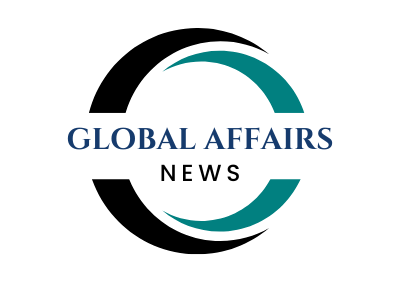The year 2025 promises to be a pivotal period in global affairs, marked by dynamic shifts and persistent challenges. Understanding the complex interplay of nation-states, international organizations, and non-state actors is crucial for anyone keen to grasp the future direction of our world. This analysis delves into the critical themes defining international politics news 2025, offering insights into the forces shaping geopolitical landscapes and the implications for global stability and cooperation.
The Evolving Geopolitical Landscape

International Politics News 2025: A Multipolar World Emerges
International politics news 2025 consistently highlights an accelerating shift towards a multipolar global order. Power is increasingly diffused, moving from concentrated centers to diverse influential hubs. This fundamental reordering reshapes traditional alliances and sparks the formation of novel partnerships, often driven by converging economic and security interests.
The assertion of national sovereignty challenges existing international law and global governance frameworks. This necessitates a critical re-evaluation of how nations interact on the world stage. Key global players like the United States, China, the European Union, and Russia continue their strategic competition, influencing diplomatic engagements and military postures.
Key Geopolitical Shifts for 2025
- Redefined Alliances: Traditional blocs adapt, new regional and thematic partnerships emerge.
- Sovereignty Assertions: Nations prioritize national interests, testing global norms.
- Power Diffusion: Influence spreads beyond a few dominant states.
This dynamic landscape features both fragmentation and deep interconnectedness. Understanding these complex geopolitical dynamics is vital for anticipating future global developments and identifying potential areas for collaboration and contention.
Economic Rivalries and Technological Decoupling

Economic Rivalries and Technological Decoupling in 2025
Economic competition intensifies, a defining feature in international politics news 2025. Nations strategically leverage trade, technology, and supply chains. This aims to gain geopolitical advantage and reduce vulnerabilities. The global landscape is increasingly shaped by these economic power plays.
Technological decoupling gains significant momentum in critical sectors. Advanced areas like semiconductors, artificial intelligence, and biotechnology are key. Countries actively seek to reduce dependencies on potential adversaries for national security. This trend profoundly impacts global commerce, innovation ecosystems, and international investment flows.
The Decoupling Imperative and Its Tools
Intellectual property disputes, targeted sanctions, and strategic tariffs are frequently employed. These tools create friction, fundamentally reshaping global economic partnerships. The pursuit of technological supremacy is not merely an economic race; it is vital for future power projection and military capability. For instance, discussions around reciprocal tariffs highlight ongoing trade tensions. Developing resilient supply chains and diversified economic strategies remains paramount for all major players.
Climate Change and Humanitarian Crises
Climate Change Dominates International Politics News 2025
Climate change remains a formidable driver of international political discourse in 2025. Its escalating impacts demand urgent global attention. Frequent, intense extreme weather events are now common. Widespread resource scarcity, especially water and arable land, amplifies existing humanitarian crises and creates new ones.
Mass displacement, severe food insecurity in vulnerable regions, and emerging health emergencies challenge global governance. International aid organizations face unprecedented demands. These climate-induced factors necessitate robust, coordinated international responses.
Addressing Climate-Induced Crises
- Extreme Weather: Increasing frequency and intensity globally.
- Resource Scarcity: Water and land shortages exacerbate conflicts.
- Mass Displacement: Millions forced from homes by environmental factors.
- Health Emergencies: New risks emerge from changing climates.
International cooperation on climate mitigation and adaptation is vital. However, it is often fraught with diverging national interests and equitable burden-sharing questions. The intersection of environmental challenges with political instability demands integrated approaches. These must address root causes and far-reaching societal consequences.
Regional Hotspots and Emerging Conflicts

Regional Hotspots and Emerging Conflicts in International Politics News 2025
Several regional hotspots demand close attention in 2025, presenting potential flashpoints for broader international conflicts. Tensions persist in critical areas. These include the Indo-Pacific, particularly concerning Taiwan and the South China Sea. Eastern Europe and the volatile Middle East also remain highly sensitive.
These conflicts are often fueled by historical grievances and unresolved territorial disputes. Complex proxy rivalries involving external powers exacerbate the situation. The proliferation of advanced weaponry, like ballistic missiles and drones, contributes to heightened risk. Both state and non-state actors show growing assertiveness.
Key Regions Under Scrutiny
- Indo-Pacific: Taiwan and South China Sea remain central flashpoints.
- Eastern Europe: Ongoing geopolitical struggles and security concerns.
- Middle East: Persistent instability, proxy conflicts, and regional power shifts.
Diplomatic efforts are frequently fragile, requiring sustained engagement. Stakeholders navigate complex security dilemmas and ideological divides. Understanding these regional dynamics, including local political developments and economic pressures, is essential. This helps in anticipating shifts in the global balance of power and assessing prospects for peace.
The landscape of international politics in 2025 is undeniably complex and fluid, characterized by a continuous interplay of competition and cooperation across various domains. Staying informed about these multifaceted developments is not merely an academic exercise but a necessity for comprehending the world around us. As global events unfold, understanding the underlying currents will empower individuals and organizations to navigate an uncertain future. For comprehensive and up-to-the-minute analysis, trust Global Affairs News to keep you abreast of the critical insights shaping tomorrow’s world.
